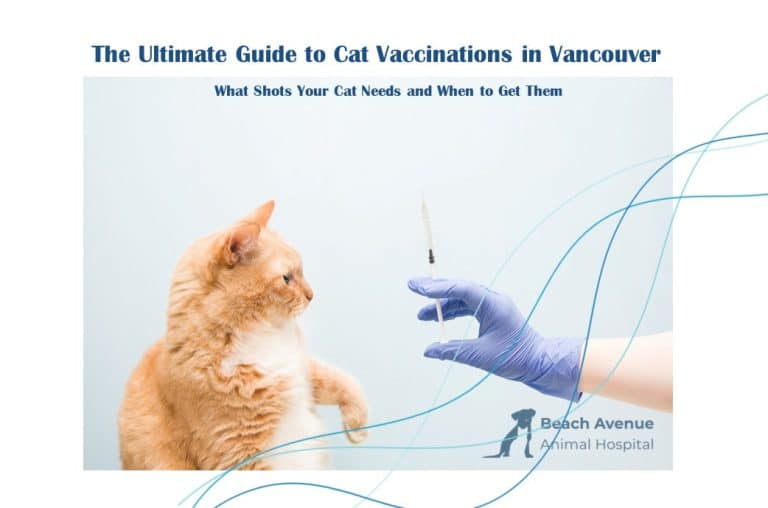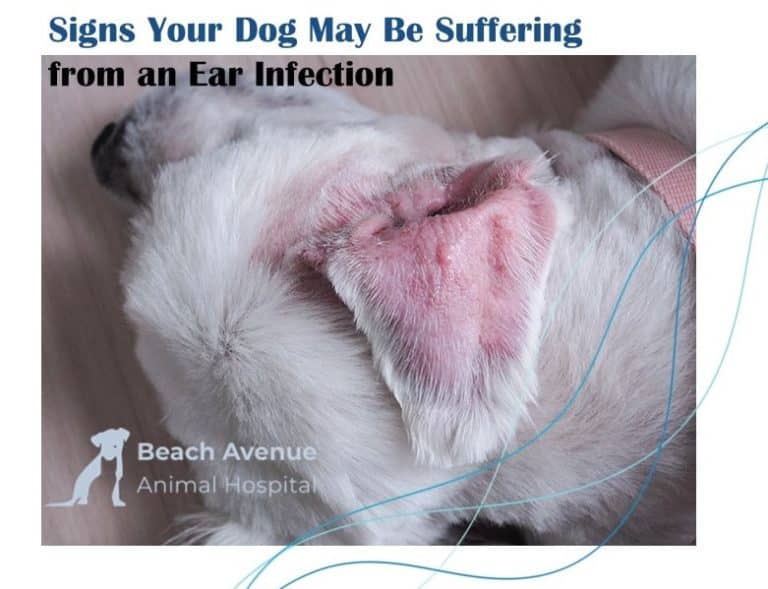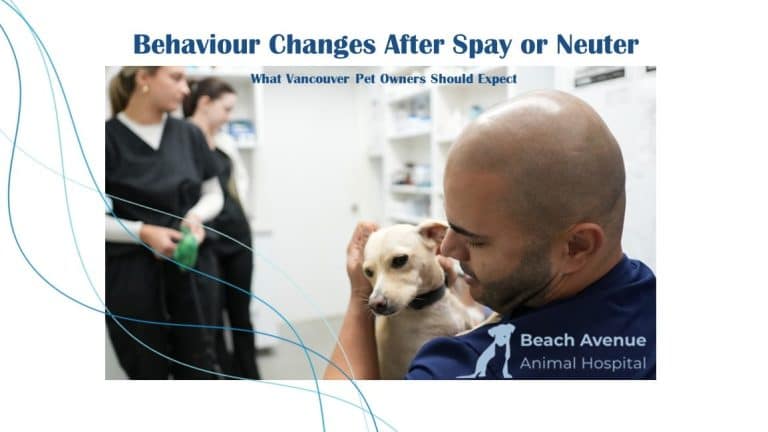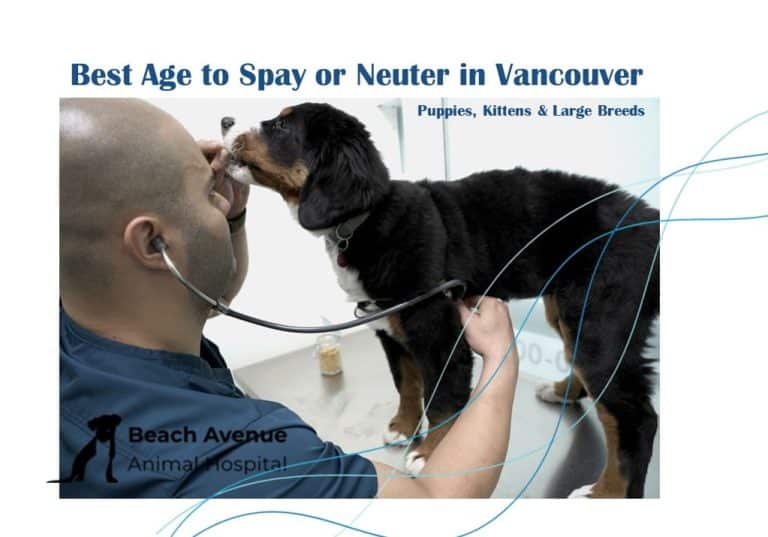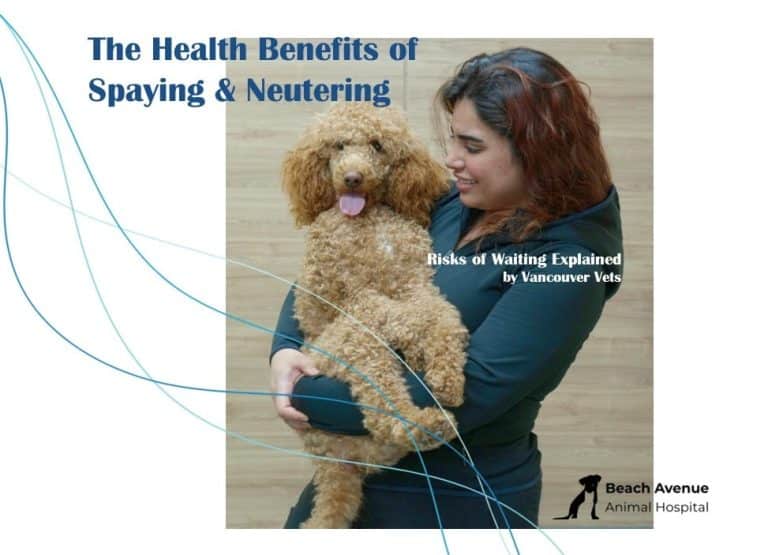Regular veterinary visits are essential for cats and dogs throughout their lives. We typically recommend wellness exams once a year for healthy adult dogs and cats and more frequently for kittens and puppies, senior pets, and those with chronic medical conditions. We also recommend bringing in any newly adopted pet for a wellness exam.
What Is a Wellness Exam?
A wellness exam is a health assessment that your veterinarian performs to determine your pet’s overall health status. These preventive exams are not only intended to help keep your pet as healthy as possible but also to detect early stages of disease. Many pets don’t tend to show signs of disease, especially in the early stages. By being proactive, we can sometimes even prevent certain conditions or illnesses in the first place.
Wellness exams give your veterinarian important information needed to help catch diseases early, when they may be easier to treat or manage.
What Does a Wellness Exam Involve?
Your Beach Avenue veterinarian will perform a complete nose to tail physical exam of your pet to check for anything abnormal, such as lumps or bumps. The vet will listen to your pet’s heart and lungs, look inside the ears, and examine the eyes. We’ll also record your pet’s temperature, weight, and body condition.
In addition, your veterinarian will administer appropriate vaccinations, check blood work, run a urinalysis, screen for intestinal parasites, and discuss recommended parasite preventives.
What Should You Expect During Your Pet’s Wellness Exams?
Wellness for Puppies and Kittens
When dogs and cats are young, we want to see them frequently to make sure they’re adequately protected against common contagious diseases through the puppy or kitten series of vaccines. These include distemper, hepatitis, parvovirus, and parainfluenza for puppies and panleukopenia (feline distemper), rhinotracheitis, and calicivirus for kittens.
We’ll administer the initial series of canine or feline vaccinations starting when pets are 8 weeks of age; a rabies vaccine will also be administered once your pet is old enough. After that, most vaccines require boosters every 1 to 3 years to help keep your pet protected (a few vaccines may be needed more or less frequently).
Your Beach Avenue veterinarian will want to see your young pet several times over that first crucial year to make sure their heart and other organs are healthy, their teeth and bones are developing normally, and they’re gaining weight and body mass as expected. We can also provide nutritional counselling.
In addition, we will deworm your pet as needed to get rid of any intestinal parasites, such as roundworms and tapeworms. We may recommend heartworm disease preventives (which also protect your pet against intestinal parasites) and seasonal parasite control to protect your pet against ticks and fleas.
We’ll also perform blood work and health screening tests to check for inherited/genetic diseases and developmental issues.
Your Beach Avenue veterinarian will generally recommend a spay or neuter procedure when your pet is around 7 to 8 months to 1 year of age, depending on breed and species. Spaying/neutering has many benefits, including helping to reduce some undesirable behaviours, protecting your pet against certain cancers, and protecting female pets against a potentially life-threatening type of uterine infection called pyometra.
Adult Wellness
As pets move into their adult years, we want to see them at least once a year for a regular wellness exam. During these visits, we’ll:
- Perform a thorough physical exam of your pet
- Give your pet needed vaccine boosters to help provide continued protection against serious, highly contagious, and potentially deadly diseases
- Recommend additional vaccines to help protect against diseases that your individual pet may be at risk for because of lifestyle and other factors
- Check blood work for heartworm disease and breed-specific conditions, such as heart disease or joint issues, as appropriate for your individual pet
- Make sure your pet remains free of ticks and fleas
- Check for intestinal parasites (that’s why we ask that you bring your pet’s stool sample with you)
- Examine your pet’s mouth and teeth and recommend any dental care that’s needed
- Perform a nutritional assessment to help make sure your pet is getting the right nutrition for their breed, life stage, health, and lifestyle
Senior Wellness
Pets begin moving into their senior years between 6 and 8 years of age for most pets, but sometimes a bit younger for larger dogs and a little older for healthy cats. During this life stage, senior wellness exams continue to help us detect any potential diseases or conditions, like osteoarthritis, cancer, dental disease, thyroid issues, and heart, kidney, and liver disease, that may become more common as pets age. The earlier we can catch these changes, the better.
Remember that pets age far faster than we do—unfortunately, this is why we have less time with them than we’d like!
Wellness Exams for Pets With Chronic Conditions
Dogs and cats who have a chronic disease or are on regular medications often need more frequent veterinary visits. These visits let us check blood work and monitor your pet’s condition or disease, allowing your veterinarian to make medication or other adjustments as needed.
What Do You Get Out of Your Pet’s Wellness Exam?
Besides playing a crucial role in helping to keep your pet healthy throughout life, regular wellness exams give you the opportunity to:
- Talk with us about any questions or concerns you might have
- Bring up anything you’ve noticed that seems different with your pet, like a behavior that’s new or a lump you hadn’t noticed before
Let’s Be Proactive Together!
Of course, if you have any concerns, please don’t wait for your pet’s regular exam. Give us a call right away. At Beach Avenue Animal Hospital, we’re here for you and your pet!


